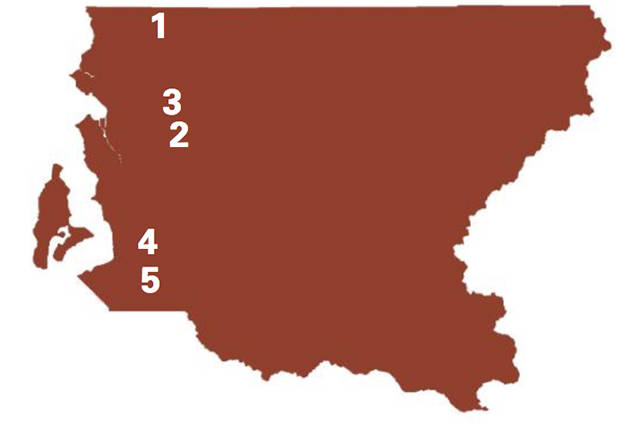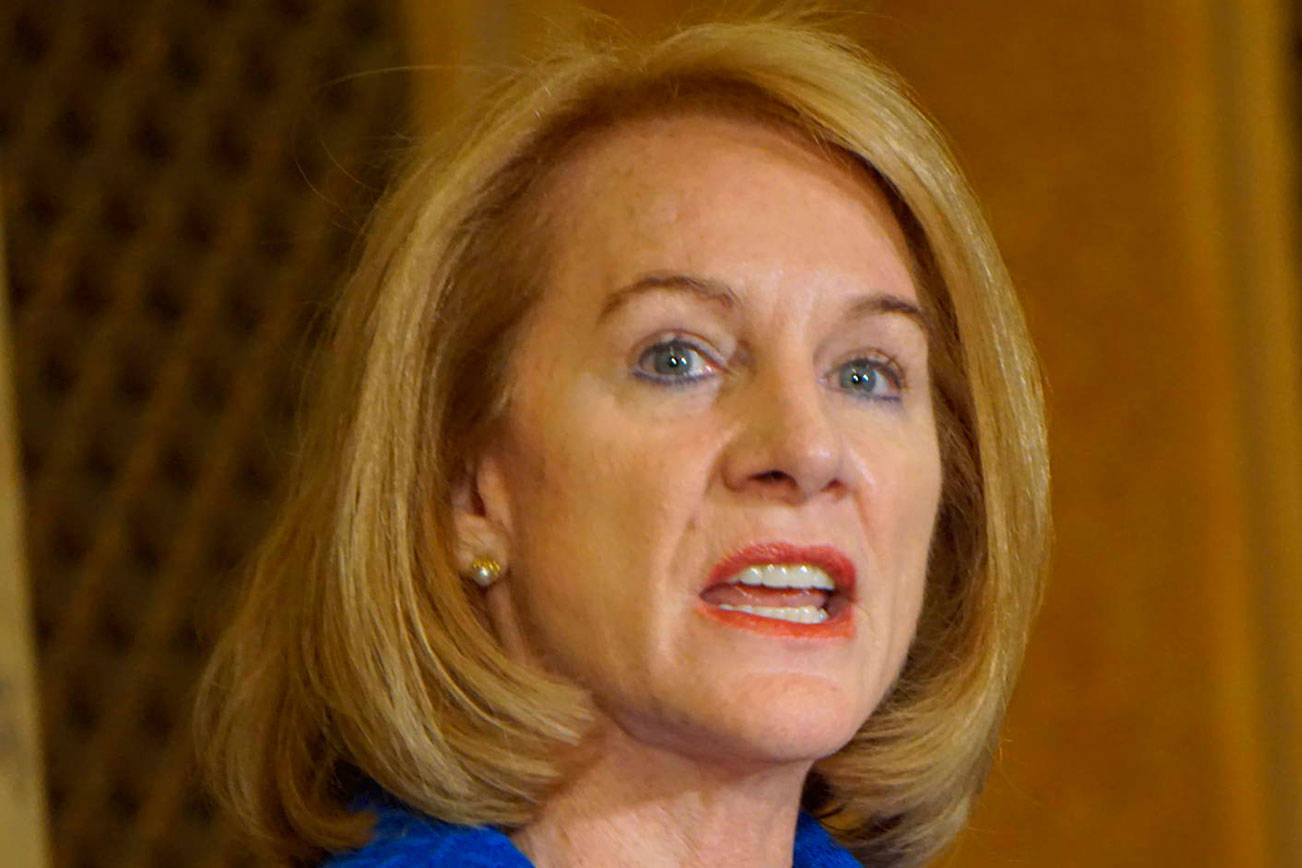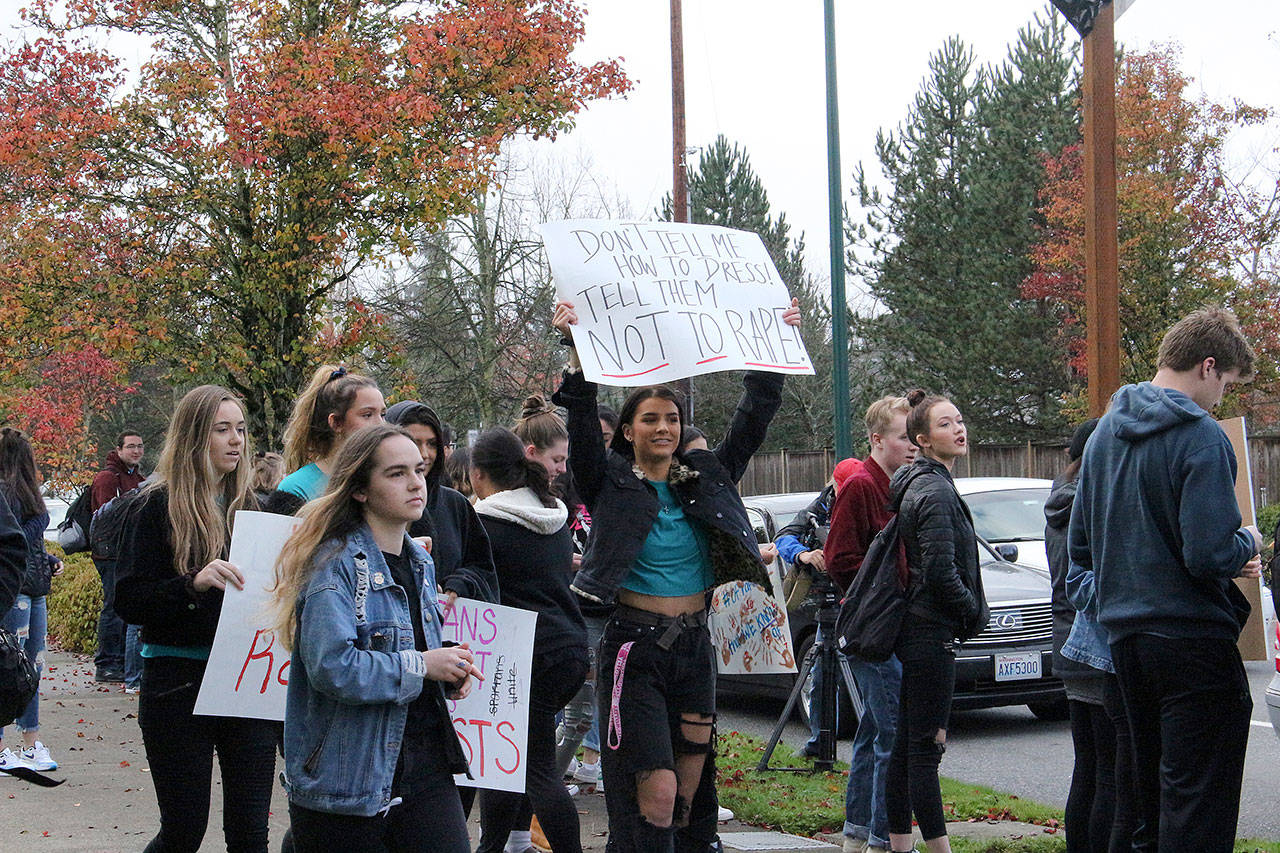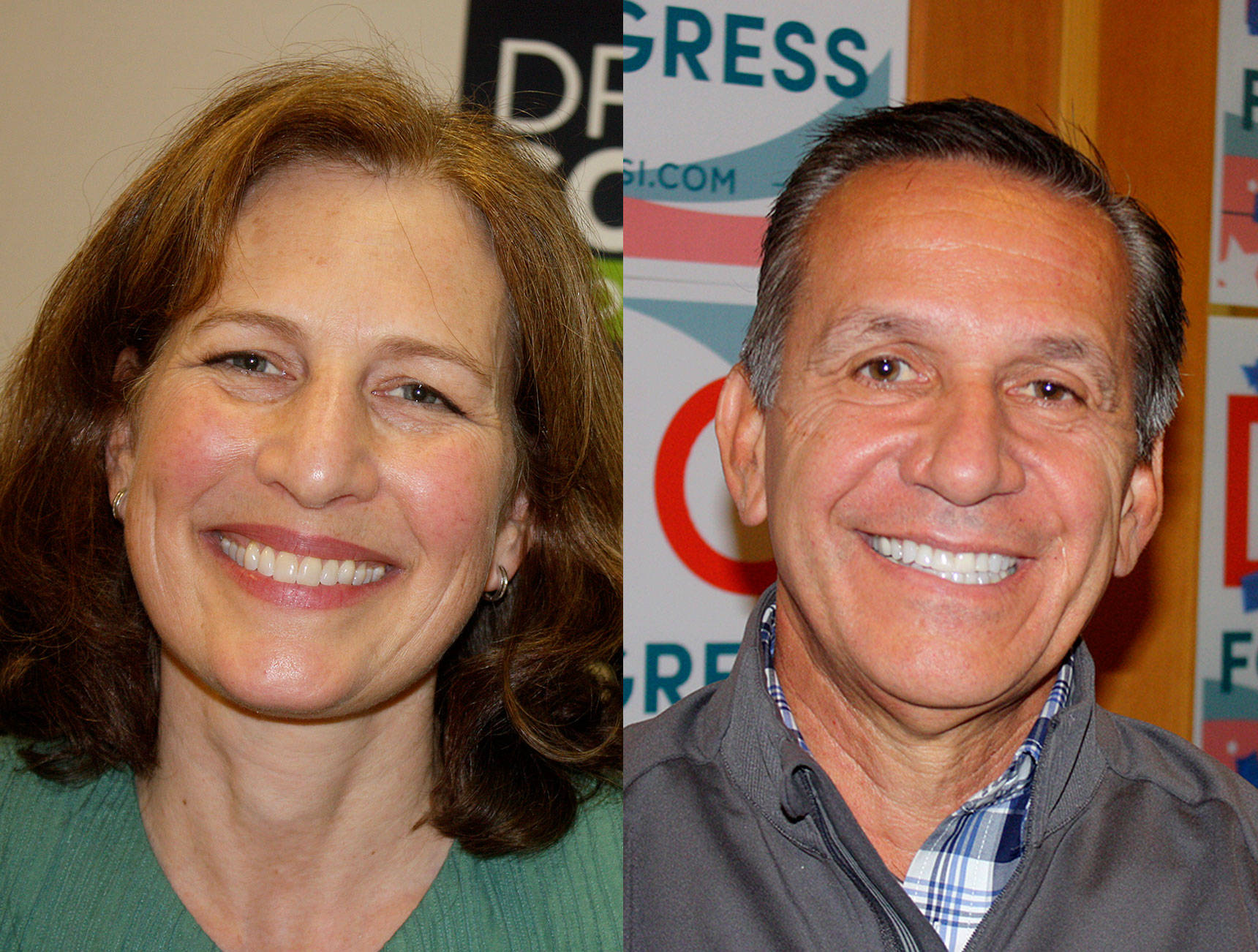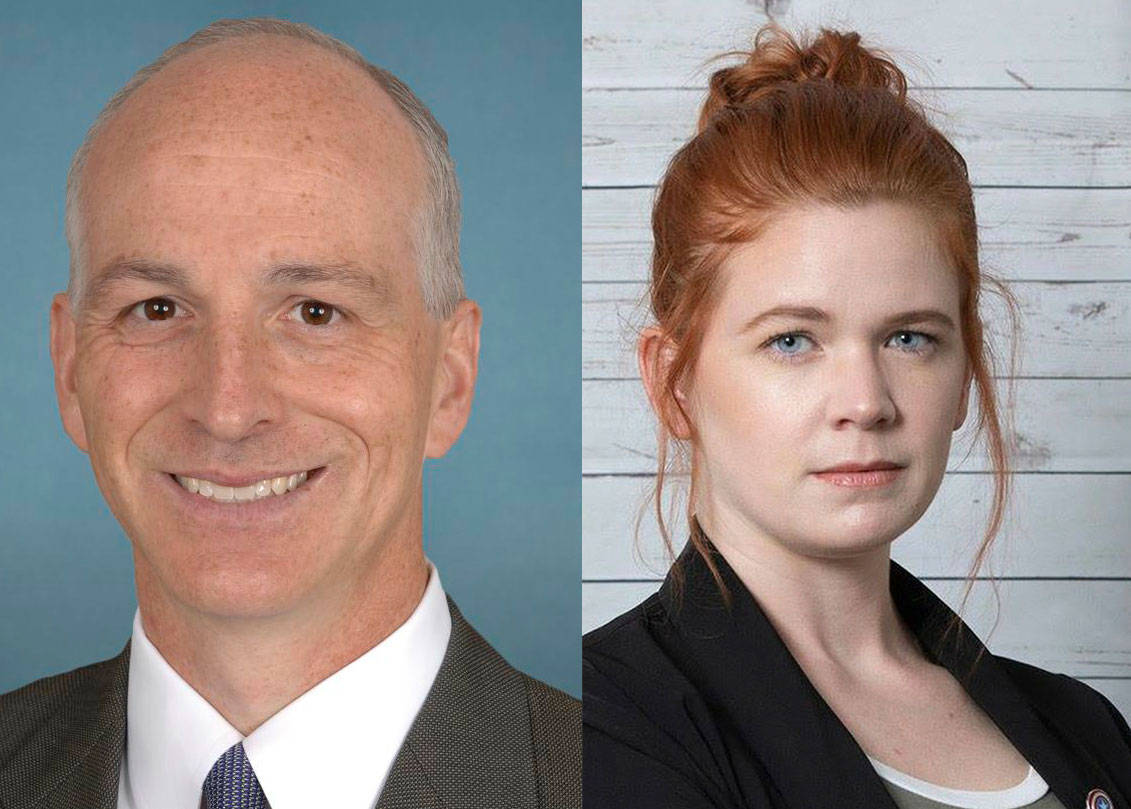1. The Bothell City Council approved the purchase of the Wayne Golf Course Back 9 last week for about $400,000. Together with last month’s action to buy the Front 9 in a sale that closed today, the move permanently preserves the entire 89-acre golf course property in the City’s largest acquisition for a single park.
“City of Bothell purchasing the Wayne Golf Course is very important to our community and our region,” said Mayor Andy Rheaume in a press release. “The preservation of this land for public use and watershed health is a huge accomplishment and testament to the many people that came together to make this possible.”
The purchase of Wayne Golf Course was made possible by a partnership between the City of Bothell, King County, Forterra, and OneBothell. In early 2016, Forterra purchased the Wayne Golf Course to allow the City to secure funding and purchase the land.
The Council’s action preserves one of the region’s last large, private undeveloped acreages for community benefit, public access, and wildlife habitat. The golf course, which includes a meandering stretch of the Sammamish River, abuts Blyth Park and the Burke-Gilman Trail. It is accessible from Bothell’s developing downtown.
As soon as the purchase is final, the public may enjoy the park, maybe by taking a stroll or doing some bird-watching.
King County has offered to design, construct and maintain trail connections from the Burke-Gilman and Sammamish River Trails through the Front and Back 9 areas.
In early 2018, the City will conduct a public process to name the new park. Also next year, the Parks & Recreation Department will launch a master planning process for the new park. Bothell-Kenmore Reporter
2. With just a few days until Christmas, one would expect Santa to be overseeing production of the thousands of toys for little boys and girls this holiday season. But he, along with several look-a-likes, was instead out protesting Thursday morning at the Factoria Walmart. The jolly protesters filled the air with chants of “Walmart, Walmart, you can’t hide, we can see your greedy side,” before security told them they had to leave.
Dressed in Santa and Grinch garb, members of the United Food and Commercial Workers International Union Local 21, which does not represent Walmart workers, said they were rallying to demand Walmart bring back holiday pay for employees, something protesters said the big box store had eliminated in 2016.
“I would say that in a time like this, in a time where Santa, where gifts, where compassion should be, we should be giving to one another,” UFCW organizer Jenny Divish said. “They’re taking away from their workers and I really think Walmart can do better and pay their workers holiday pay.”
In response, Walmart spokesperson Blake Jackson contended that the store hasn’t taken away anything.
Jackson said Walmart employees still get their six holiday days off. However, instead of dividing their paid time off into categories, it’s all in one pool for them to use at their discretion.
“Walmart’s paid time off program is designed to give associates more stability in their lives,” Jackson said. “Both full- and part-time associates receive a paid day for each Walmart holiday, and it’s important that our people have the control and flexibility to decide how they use that extra paid time. At the end of the year, hourly associates can rollover some unused PTO and can cash out the remainder to use as they please.”
However, Walmart does not offer increased hourly rates to employees who work on traditional holidays, as many of their competitors do. Also, holiday time, like the rest of employees’ paid time off, is accrued.
Amy Ritter, a spokeswoman with the UFCW’s Making Change at Walmart campaign, said their policy means a new part-time worker has to work 43.33 hours to get one hour of paid time off, “or 173 hours to pay for one four-hour shift off.”
“Walmart can’t have it both ways,” she said. “When they ‘streamlined’ their PTO system, they put vacation days, holiday days, sick days, etc. into one big pot. … Walmart needs to do what is right and pay their workers holiday pay—they’ve earned it.”
The Factoria Walmart rally was one of 13 demonstrations being staged by UFCW as part of the Making Change at Walmart campaign. The initiative’s goal is to denounce Walmart’s “war on holidays” and demand the retailer restore holiday pay. Bellevue Reporter
3. More than half of the cases in an August prostitution bust in Bellevue will be thrown out because of a mistake made during the undercover sting.
The Bellevue Police Department and King County Sheriff’s Office launched “Operation On Demand” by posing as prostitutes as they gathered evidence from online buyers of sex. The week-long operation resulted in the arrest of 110 for patronizing a prostitute.
Yet, according to an announcement issued by the city of Bellevue last week, 61 of those cases have been discarded. The reason, according to Bellevue police spokesman Seth Tyler, was because an error caused hidden cameras to record audio during the operation. Washington state law requires two-party consent to the recording of audio conversations.
The Bellevue Police Department is unsure at this time whether the error was due to a misstep by a King County Sheriff’s Office employee or a technical error with the cameras.
“We don’t know where this malfunction occurred, we don’t know if it was an operator or mechanical problems and that’s what we’re trying to triage right now,” Bellevue Police Department Chief Steve Mylett said. “We don’t know specifically where this will fall to but I can tell you I’m very convinced this was unintentional.”
Tyler said this error was discovered by a lawyer of one of the 110 who were charged with patronizing prostitutes during the prosecution of the case.
That caused the city of Bellevue’s prosecutors to look into the other cases. The Bellevue city attorney’s office eventually dismissed 61 of the cases.
“While this turn of events is disheartening, it is important to remain focused on the goal of operations such as this: to eradicate human trafficking and its related crimes wherever they exist,” Mylett said in a news release. “The mistakes made in this case were just that, mistakes. We will learn from these missteps and ensure we do not repeat them in future operations. Rest assured, there will be future undercover operations such as this one to achieve our goal.” Bellevue Reporter
4. A King County inquest jury decided last week that Kent Police Officer William Davis believed Giovonn Joseph-McDade posed a threat of death or serious bodily injury before Davis fatally shot him in late June.
The six-member jury answered a series of questions after hearing testimony from Davis and witnesses during the three-day inquest in front of King County District Court Judge Susan Mahoney at the Maleng Regional Justice Center in Kent. The jury’s answers were released last Wednesday by the District Court.
All six jurors answered “yes” to the question that at the time Officer Davis fired his weapon did he believe Joseph-McDade posed a threat of death or serious bodily injury to himself or others?
Joseph-McDade, 20, of Auburn, died June 24, from multiple gunshot wounds after he reportedly tried to use his vehicle to run over Davis after a short pursuit. Joseph-McDade was a former football player and student at Kent-Meridian High School.
The King County Prosecuting Attorney’s Office will review the information from the investigation, led by Des Moines Police, and the findings of the inquest to make an independent determination regarding whether or not criminal charges are warranted. That decision is expected to take a week or two. Kent Reporter
5. Two years ago, Auburn City Council members set themselves the goal of increasing Internet access in their community, aiming to achieve digital parity in the city by 2020. They agreed then to focus first on providing broadband access to low-income students, launching a pilot “digital parity” program that would operate apart from service providers like Comcast and ATT, covering an area from downtown Auburn to Game Farm Park, parts of Lea Hill, and school areas on Muckleshoot Hill. Those parts of Auburn have been wired since February 2017 at a cost to the city of about $15,000.
Paul Haugan, director of the Department of Innovation and Technology for the City of Auburn, told the City Council at a study session last week at City Hall that, with the pilot program complete, the City is ready to take the next step.
“We have proposed, at a minimum, 80 percent of low-income students as the coverage goal,” Haugan said, adding that IT planning in 2018 will target five high-value areas the Auburn School District has already designated.
Taking that minimum as his starting point, Haugan then rolled out two percentage-of-coverage options and their associated cost estimates. Under option 1, for an estimated $2.71 million, 80 percent of low-income students and 54 percent of all Auburn residents would receive internet coverage; and under option 2, for an estimated $6.27 million, 80 percent of all Auburn residents would receive it.
Haugan stressed that the figures he offered Monday are only best estimates based on current experience, as a detailed project estimate would cost a significant amount of money and lose its accuracy as costs change.
“We expect these costs to go down over time,” Haugan said. “Partnering with vendors has already saved us substantial sums; that, in addition to new technologies currently being developed, should translate into lower costs over the life of the project.” Auburn Reporter
